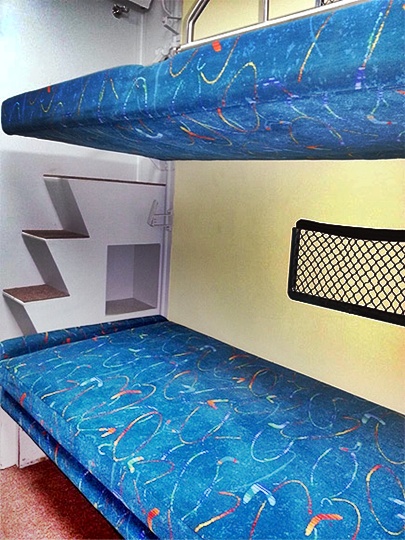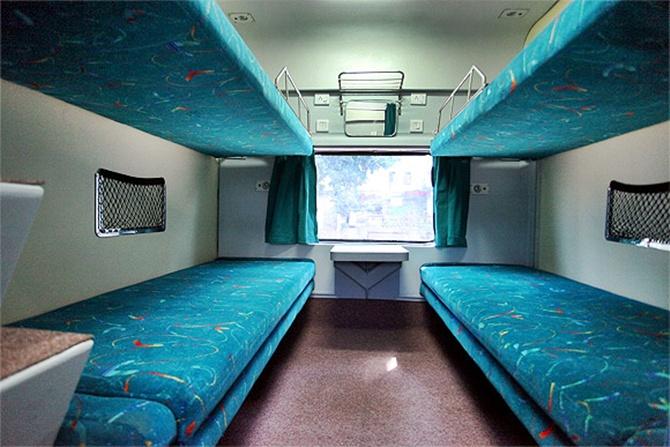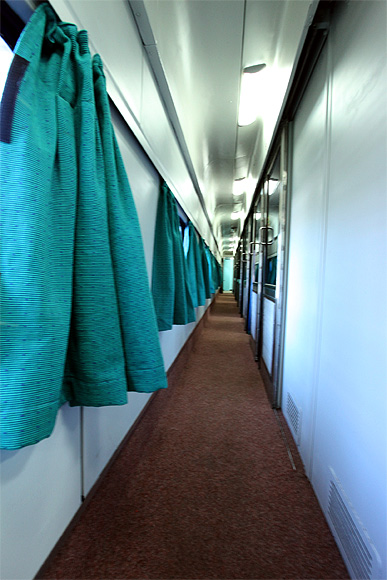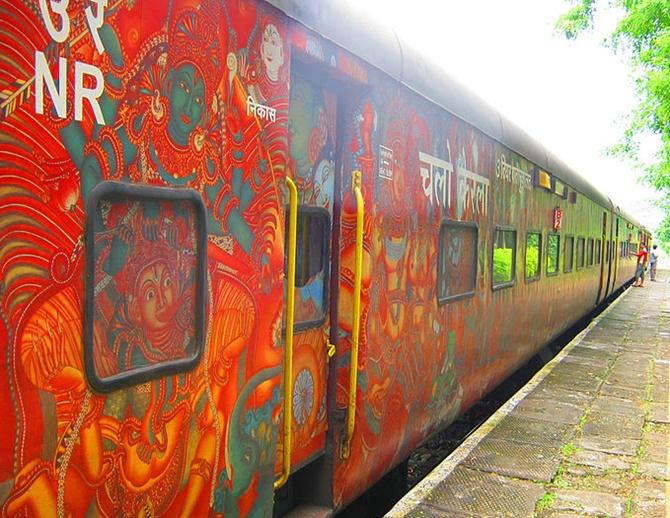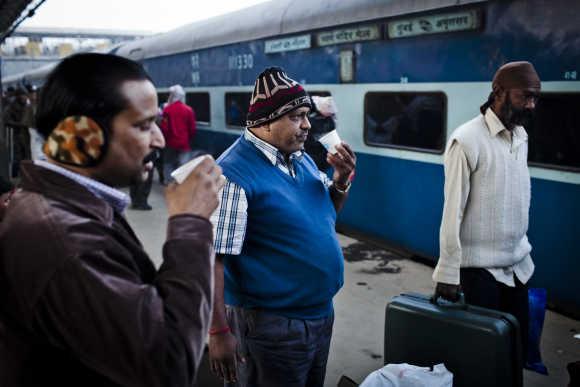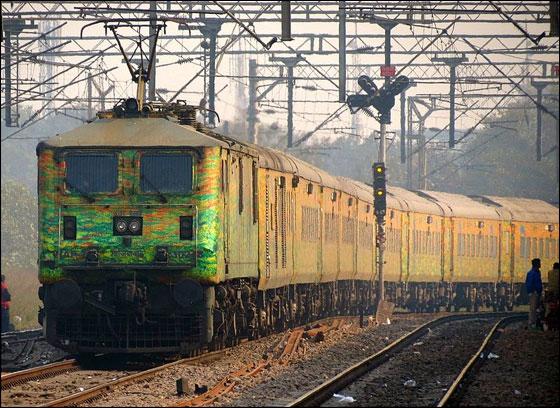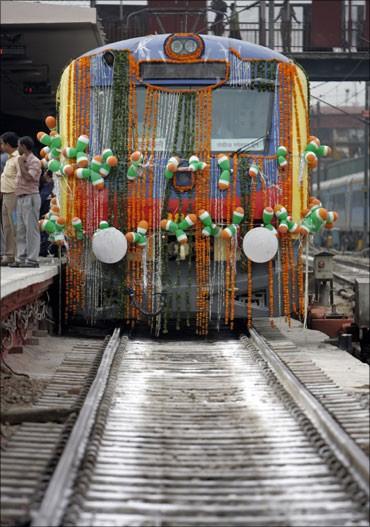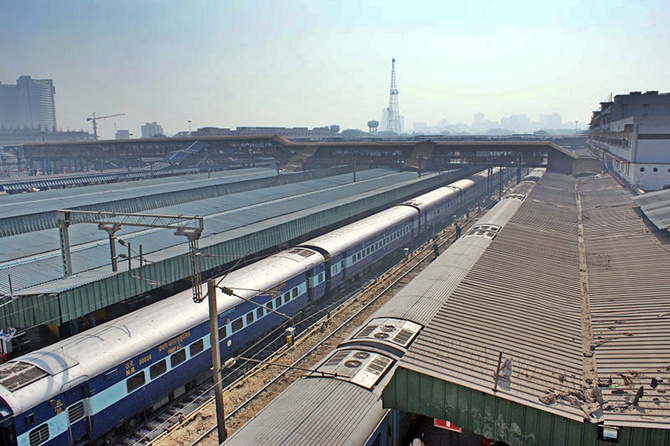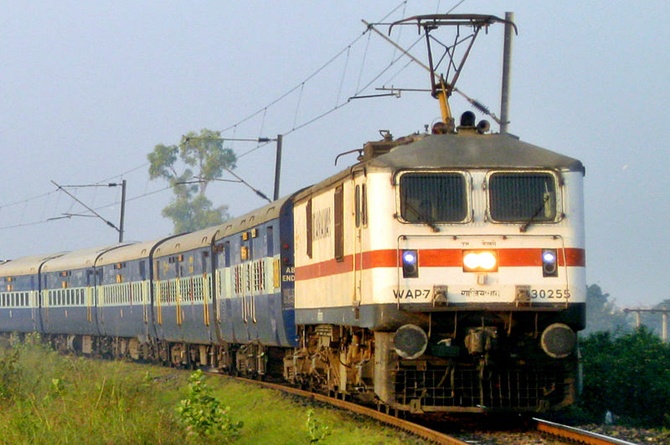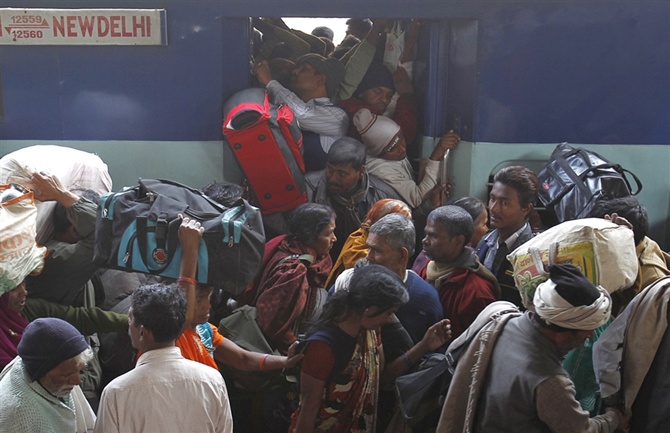 | « Back to article | Print this article |
Cleanliness drive: Disposable bed linen in Rajdhani Express!
If you are on board an Indian Railways coach and get bed linen never used by anyone, your chances of getting a good night's sleep increase manifold, especially if the compartment is pest-free.
You might get this happy surprise when you next board a train. The Railways is planning to soon try disposable bed linen, on an experimental basis, in the Bangalore Rajdhani Express.
Please click NEXT to read more…
Cleanliness drive: Disposable bed linen in Rajdhani Express!
Among other initiatives that the Railways is planning for giving you a "clean experience" are bio-toilets, pest-free train coaches and setting up of more cleaning stations.
All of this with a mere Rs 940 crore in pocket? It seems the country's biggest transporter has a very daunting task at hand.
But the Railway Board is in a mission mode to make these possible, especially because cleanliness is among the three priority areas Prime Minister Narendra Modi has identified for the country's railway network.
Please click NEXT to read more…
Cleanliness drive: Disposable bed linen in Rajdhani Express!
According to a senior official asking not to be named, unlike earlier years, the Railways has this year clubbed all its cleanliness allocation under one head.
The budget for this has seen a major increase from last year's Rs 673 crore (under various heads).
"The cleanliness budget has been increased about 40 per cent this year. There has also been a reallocation of funds under the cleanliness head, so that the money can be targetted towards such work," Alok Johri, Railway Board member (mechanical), tells Business Standard.
Please click NEXT to read more…
Cleanliness drive: Disposable bed linen in Rajdhani Express!
However, the use of disposable bed linen - which will cost the Indian Railways roughly Rs 75 a trip, compared with Rs 55 for cotton ones - entails the challenge of overcoming safety hazards more than the price factor.
These disposable sets - each containing a bed cover, a bed sheet, a pillow and a blanket - will add to the fire load of coaches, as these are synthetic and inflammable, unlike their cotton cousins currently in use.
Please click NEXT to read more…
Cleanliness drive: Disposable bed linen in Rajdhani Express!
According to Johri, while the Railways is working on this aspect, the new sets, supplied and designed by small-time contractors, also need to appeal to the commuters.
Indians do not generally feel comfortable covering themselves in synthetic sheets.
The biggest problem with the existing cotton sets, according to Johri, is their worn-out look due to repeated use.
Please click NEXT to read more…
Cleanliness drive: Disposable bed linen in Rajdhani Express!
"The zonal railways can buy bed linen only from the outlets of Khadi and Village Industries Commission and Association for Consumer Action on Safety & Health (Acash). These organisations, sometimes, are not able to meet the replacement requirements. So, we have asked the zonal railways to procure the sets, in case of short supply, from other sources as well."
The Railways also plans to set up 64 mechanised laundries over the next three years to do the washing itself, instead of relying on conventional washermen.
Please click NEXT to read more…
Cleanliness drive: Disposable bed linen in Rajdhani Express!
Also, the Railways is adding some half a dozen cleaning stations to the current 34 where mechanised cleaning of trains halting for more than 15 minutes takes place.
However, bio-toilets are arguably the most complicated part of the Railways' cleanliness drive.
A stainless steel bio-toilet set - with six chambers and costing Rs 90,000 - is to be fitted beneath each of the four rest rooms in a train coach. These toilets have a colony of anaerobic bacteria that do not require oxygen to breathe.
Please click NEXT to read more…
Cleanliness drive: Disposable bed linen in Rajdhani Express!
Aerobic bacteria, which survive on oxygen and have been used in some foreign trains, have proved unsuccessful in the Indian system.
The friendly-bacteria technology, developed by the Defence Research and Development Organisation for use in such toilets, breaks down faeces into methane and portable odourless liquid.
This takes care of not only cleanliness but corrosion caused on railway tracks due to human droppings.
Please click NEXT to read more…
Cleanliness drive: Disposable bed linen in Rajdhani Express!
Though the Railways is installing bio-toilets on both conventional train coaches and the latest Linke Hofmann Busch (indigenised German technology) ones, it is only by 2016-17 that all new coaches will have such toilets.
As of earlier this month, 11,800 such toilets had been installed in railway coaches.
Please click NEXT to read more…
Cleanliness drive: Disposable bed linen in Rajdhani Express!
Rolling On Clean Track
Some measures the Indian Railways, with the world’s largest fleet of 53,000 coaches on 7,000 trains, is planning
Bio-Toilets
Stainless steel kits with empty-load weight of 110 kg to be fitted under each of the four toilets in a coach
Each kit has a colony of anaerobic bacteria that break faeces into methane and portable liquid
Cleaner Linen
Synthetic disposable bed linen, instead of cotton ones, to be used; this could add to the fire load
64 mechanised laundries to be set up for washing cotton beddings
Cleaning Stations
6 cleaning stations to be added to the current 34 where mechanised cleaning of trains halting for more than 15 minutes takes place
Pest Control
Fumigation through branded chemicals to avoid toxicity under integrated pest control contracts
